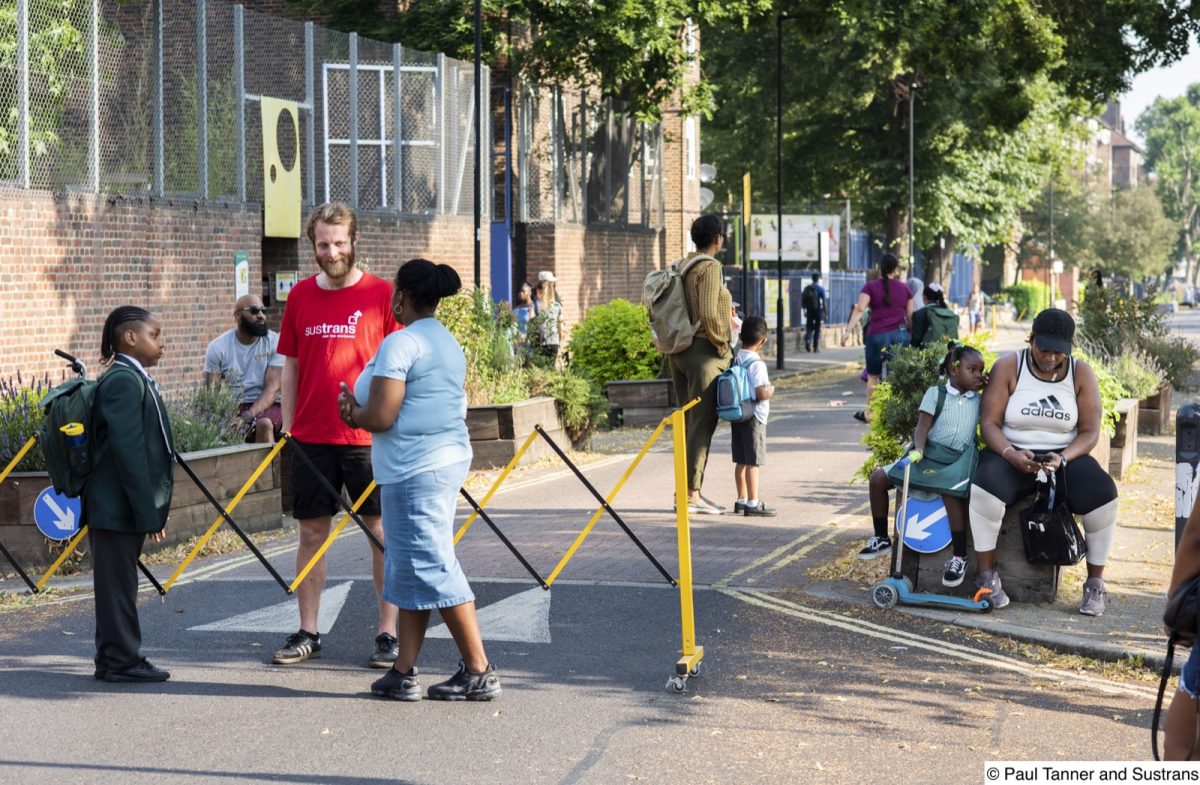Enrica Papa, Emilia Smeds, Tom Cohen
Read more at: https://www.ex-tra-project.eu/
Across Europe, cities are trying to radically reduce their reliance on car-based mobility in order to address sustainability challenges. The EX-TRA project is studying experiments with city streets that are being undertaken in London, Amsterdam, Ghent, Munich, Bologna and Milan: temporary changes in street use, regulation and/or form, aimed at exploring systemic change towards a ‘post-car city’.
The COVID-19 pandemic has thrust this mode of governing mobility and public space into the limelight. The experiments studied in London include a School Street and a parklet and Mobility Hub implemented in 2020.
The team at the University of Westminster is focused on understanding local people’s perceptions of street experiments. Linked to a discourse of ‘emergency’ in 2020, many experiments were implemented rapidly without much prior debate about the role of streets in a good city. However, as experiments are designed to be temporary, they also allow urban dwellers to imagine – with their own eyes – what the function of streets could be in the future.
In this moment, where decisions regarding the post- COVID future of experimental interventions are being considered, capturing a diversity of values and perspectives is crucial. Dominant approaches to evaluating street space privilege expert-de ned urban design criteria and quantitative metrics. EX-TRA seeks to decolonise knowledge production, by uncovering the value of non- expert and non-technocratic knowledge.
To do this, the project uses an ethnographic and inductive method focused on storytelling. This includes data collected from a Commonplace digital engagement platform, focus groups and interviews. Instead of imposing pre-existing ‘expert’ concepts and values top-down, the aim is to build the capability of affected communities for assessing street experiments, through participatory evaluation.
This 3-year project (2021-2024) is funded by the ESRC, via the JPI Urban Europe ERA-NET Co-Fund, along with university partners and funding agencies in 5 other European countries.










